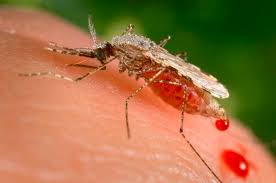
What is the virus?
The West Nile virus was first identified in the West Nile region of Uganda in 1937, but has attracted greater attention from Western countries in recent years. West Nile can potentially (though very rarely) cause a fatal neurological disease in humans; but the biggest concern when it comes to West Nile is the fact that 80% of infections in humans show no symptoms, making it incredibly difficult to diagnose. With no vaccine currently available for humans, the best way to reduce risk of contracting West Nile is mosquito control.
What is the risk?
Unfortunately, prevention is definitely the best cure with West Nile. Anyone and everyone in an at risk area could have a single bite from an infected mosquito and contract the West Nile virus.
The risk of the virus varies from year to year based on precipitation, temperature and mosquito population levels. The highest risk periods are generally when the mosquito populations are at their peak during summer months, and those at the highest risk are those who are spending times in the great outdoors, or those who are over the age of 50. It can also be particularly serious for people with chronic diseases.
What are the symptoms?
While most people who get WNV (70%-80%) show no symptoms and do not become ill, others may show symptoms that can range from mild to severe (though most cases are mild). First symptoms usually appear within 2 to 15 days after infection.
Mild symptoms may include:
- Fever
- Headache
- Mild rash
-
Body aches
Very few people (fewer than 10% of those with symptoms) have severe symptoms that affect the central nervous system (nerve tissues in the brain and spinal cord). Severe symptoms may include:
- Very bad headache
- Fever
- Stiff neck (you might have trouble moving your neck side-to-side)
- Nausea or vomiting
- Difficulty swallowing
- Drowsiness
- Blurred vision or worsening eyesight
- Confusion
- Muscle weakness and reduced coordination
Is there a treatment?
Unfortunately, there is no specific treatment or vaccine for West Nile virus infection in humans. Health care professionals diagnose the infection based on the patient’s symptoms, geographic location and the time of year they were bitten, and the results of some laboratory tests.
THEYE mosquito protection
As it stands now, the key to combating West Nile is prevention. That's where we come in. It’s time to make the most of mosquito repellents and keep yourself protected. From creams, wipes, sprays and bands, there are a variety of ways to ensure you’re protected, whilst you enjoy the heat.
Check out our NEW range of Mosquito Repellent products, and choose the best ones for you. These have all been manufactured in the UK and tested to be highly effective against many biting insects, so they are really a one-size fits all way of making sure you’re protected against pests when out there. They are natural, powerful plant based formulations that show in testing to be as effective as synthetic chemicals but without the risk of side effects. They are moisturising to the skin, with a pleasant smell, benefit from being DEET & Alcohol free and are even suitable for pregnant women and children as young as 6 months old.
